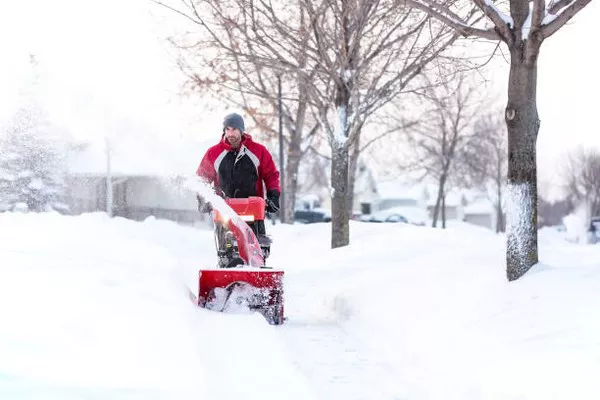Electric snow blowers have become popular choices for homeowners seeking efficient and eco-friendly alternatives to their gas-powered counterparts. However, like any machinery, electric snow blowers can encounter issues that may disrupt their smooth operation. One common concern reported by users is the electric snowblower running for only a few seconds before unexpectedly shutting down. In this article, we will explore the potential reasons behind this issue and offer troubleshooting steps to help users address and resolve the problem.
Power Supply Issues
A primary factor contributing to the abrupt shutdown of an electric snowblower is power supply irregularities. Insufficient or unstable power can cause the machine to start and then immediately shut down. Users should first ensure that the snowblower is connected to a reliable power source with the correct voltage. It is advisable to use a dedicated outlet for the snowblower to prevent interference from other household appliances.
If the problem persists, users should inspect the power cord for any damage or wear. A frayed or damaged cord can lead to power fluctuations and disrupt the snowblower’s operation. In such cases, replacing the cord with a new one compatible with the snowblower’s specifications may resolve the issue.
Overloaded Circuit
Another potential cause for the brief operation of an electric snowblower is an overloaded circuit. When multiple appliances are connected to the same circuit, the snowblower may not receive sufficient power to operate continuously. Users should check the circuit breaker and ensure that it is not tripped. If the breaker trips repeatedly, it may indicate an overloaded circuit.
To address this, users can try disconnecting other appliances from the circuit or use a dedicated circuit for the snowblower. Additionally, avoiding the use of extension cords and plugging the snowblower directly into the outlet can help ensure a steady power supply.
Thermal Overload Protection
Many electric snow blowers are equipped with a thermal overload protection feature designed to prevent the motor from overheating. If the machine runs for a few seconds and then shuts down, it may indicate that the thermal overload protection has been activated.
Users should check for any obstructions around the motor or impeller that could restrict airflow, leading to overheating. Clearing away snow or debris from these areas can help maintain proper ventilation. Additionally, allowing the snowblower to cool down for a sufficient amount of time before restarting can prevent the thermal overload protection from triggering again.
Faulty Safety Interlock System
Electric snow blowers are equipped with safety interlock systems that prevent the machine from operating if certain conditions are not met. One common component of this system is the safety key. If the safety key is not properly inserted or is damaged, the snowblower may start and then quickly shut down.
Users should carefully inspect the safety key and its corresponding slot to ensure proper alignment and functionality. If the key is damaged, it should be replaced with a new one from the manufacturer. Additionally, users should check for any other safety interlock mechanisms, such as handles or levers, and ensure they are engaged properly during operation.
Battery Issues (Cordless Models)
For cordless electric snow blowers that rely on batteries, a brief operation followed by shutdown could be attributed to battery-related issues. Users should check the battery’s charge level and ensure it is fully charged before use. If the battery is old or damaged, it may not hold a charge long enough for the snowblower to complete its operation.
Replacing the battery with a new, compatible one is a potential solution. It is also essential to store batteries in a cool, dry place when not in use and follow the manufacturer’s recommendations for proper battery maintenance.
See Also Can Snowblowers Clear Slush? Exploring Best Practices
Conclusion
In conclusion, the issue of an electric snowblower running for only a few seconds before shutting down can be attributed to various factors, including power supply issues, thermal overload protection, circuit overloads, safety interlock problems, and battery issues in cordless models. By systematically troubleshooting and addressing these potential causes, users can enhance the performance and reliability of their electric snow blowers. Regular maintenance, proper storage, and adherence to manufacturer guidelines will contribute to the longevity and efficient operation of these essential winter tools.

